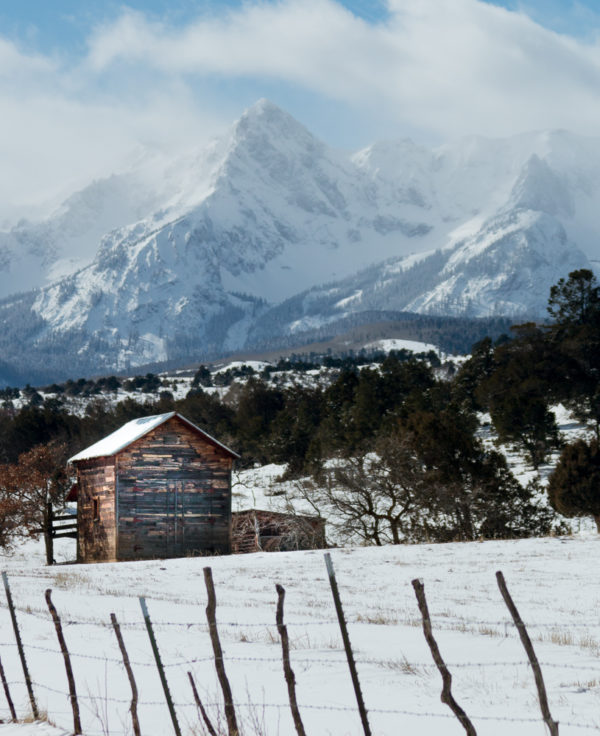A Loud Silence
“Biden is not the problem. The problem is people like you who question his age and viability as president for a second term. You will get Trump reelected!”
This was the sharp criticism leveled at me last September by a prominent Democrat in Colorado after I laid out a plan for Biden to step aside and allow others whom he would recommend to compete to be the Democratic nominee in 2024. A plan many Democrats now wish they had followed. I have the receipts. The post was titled “Let’s Get Really Real” (https://ameritecture.com/lets-get-really-real/). I have repeated this argument of late last summer in January this year in my post, “Dear President Joe: What About Us?” (https://ameritecture.com/dear-president-joe-what-about-us/), and showed this spring how another candidate who studied Reagan’s campaigns could win this November in, “How Can ____Win in November” (https://ameritecture.com/how-can-_____-win-in-november/). I also predicted privately throughout last fall and this spring that neither Trump nor Biden would be inaugurated next January, that someone else would be the next president. That may prove to be more hopeful than realistic, but we shall see.
After Biden’s epic failure in the debate last Thursday, which the columnist Andrew Sullivan characterized as “elder abuse” by his campaign and Jill Biden, I hope that both Joe and the Democrats wake up and select a new candidate. Post-debate polls and donor response will probably drive that discussion. Joe’s stubborn ego may have met its match. Regardless of how that drama unfolds, as a presidential scholar I am aware that this might be one of those times that the quietest among us rise up to change the dynamics of the election.
In the American experiment that now spans almost two-hundred fifty years, there arrive periods of time when the balance of power suddenly shifts with such subtleness that it baffles both pollsters and pundits. They are left stupefied and dismayed like the schoolyard bully who has been suddenly punched in the face by his heretofore tormented victim. In our two-party dominated system (unlike the parliamentary democracies in Great Britain and the Continent), political transformation shakes things up in such a dramatic fashion one would have expected revolution as a prerequisite. And yet, both dramatic change and calm coexist.
These are moments in history when the loudest and most obnoxious among us, which today are the far-left wokies and the far-right MAGAs, suffer nearly instantaneous irrelevance. It is when the 70% of Americans who reside between them have their way. Historians call this the revenge of the silent majority. Which, as if by some unseen divine intervention, the silent majority exerts its will—with neither fanfare nor rabble—and effectively take their country back.
The term silent majority and its transformational allure have been with us for centuries. The first use of the term is believed to have been by the Roman writer Petronius invoked as a euphemism for the dead—for the majority who no longer had a voice. In the nineteenth century, it was used to describe the blindness of monarchs who routinely ignored the masses (often at their peril). In 1919, the Republican Bruce Barton in Collier’s magazine fawned on Calvin Coolidge by suggesting he was the voice of the “great silent majority.” John F. Kennedy, in his book Profiles in Courage, suggested that Republicans under the Eisenhower/Nixon administration adroitly recognized the “sentiments of the silent majority.” However, it wasn’t until after the 1968 Democratic National Convention in Chicago—including a fiasco of violence between the police and protesters—that the term silent majority became codified in political strategic thought. Nixon/Agnew used it to rally enough voters to two terms (although both left office in disgrace).[i] Writing about the 1968 presidential election the journalist, Theodore White, wrote,
Never have America’s leading cultural media, its university thinkers, its influence makers been more intrigued by experiment and change; but in no election have the mute masses more completely separated themselves from such leadership and thinking.[ii]
As tumultuous as the radical era of the 1960s was, it ended with a silent thud.
As we enter the summer stretch toward the elections of 2024, I wonder if the same silent thud will be visited upon our extremes today who, while polar opposites, share at least one common bond: they both see their path to power as paved with the grievances of victimhood while many in the middle still embrace the quaint notion of performance as a prerequisite to power. Perhaps the recent debate, or outrageous behavior at one or both conventions, will cause the silent majority to raise its quiet hand of condemnation again. The modality of the electorate today seems to be defined by a simmering sense of discontent, much in the same way as they were in 1968. The majority today are not boosting signs of protest or waving provocative flags; rather, they are emerging from the fatigue of a pandemic, they find their national leaders embarrassing, and have become numb to noise. However, it would be foolish to regard their silence as indifference. Further, while they are open to persuasion, they see most of their national leaders as little more than masters of deceit and manipulation.
I see a massive political opportunity here. One that is not too late to seize. To speak to the 70% in terms that are respectful and sincere. To turn their discontent into hope, and to do so with a sense of preternatural calm. To listen rather than yell while thumping one’s chest, whether orange or below aviator sunglasses. Nixon was fatally flawed, but in 1968 he was the stability the silent majority sought. Surely today, we can do better than him. People yearn for a choice other than between what the Democrats and Republicans are offering: a well-meaning but feeble Biden, or the deranged but energetic Trump. With both traditional and social media today, which have been massive magnifiers of the loud left and right in their pursuit of ratings and clicks, we may be in store for an even louder thud as the amplified artifice of the extremes comes tumbling down.
The institutionalized mire that affects both major parties today may not be defeated in 2024, but eventually the majority will prevail. This is a distinctly American reality. We have nearly two-and-a-half centuries of proof to predict that it will. The opportunity for one or the other party to wake up to this reasoned, deliberate, and humble path to power is simply too attractive to ignore.
In 2024, history suggests to expect the unexpected. It looks like it will be an intriguing (maybe even exciting) election year after all. To my Democratic critics, please know: there is a fine line between loyalty and sycophantic ignorance. Further, you might want to start prioritizing winning (as Republicans do), as opposed to just being admired. Summon some resolve. You, not me, are the reason Trump may be reelected and we lose our democratic republic.
It is never too late to do what is right.
[i] Many “silent majority” references can be found at https://en.wikipedia.org/wiki/Silent_majority.
[ii] William Safire, Safire’s Political Dictionary (Oxford University Press, 2008), p. 660.








